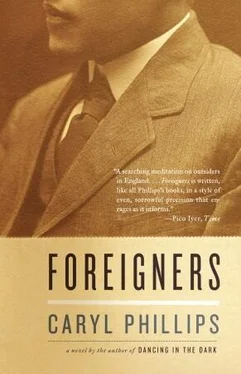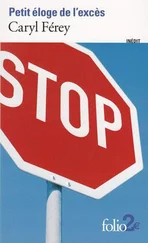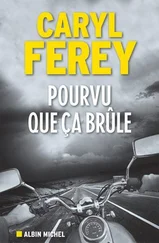My father was a military-minded man. Being an army sergeant, he was dominant in the family and he was difficult. My joining the police force was his idea and he said it would make a man of me. My mother was silent on the matter, as she was on most things. She was ten years younger than my father, and she didn't get a look in when it came to decisions. At the age of nineteen I thought I'd give it a crack and join the Leeds police force and see if I could get my father on my side. Initially I liked Leeds, and I liked the life on The Headrow. I was stationed in the centre of Leeds. Millgarth Station covered a nonresidential area. Issues at Millgarth were mainly to do with crime, vagrancy, revellers in the pubs, drug users, and there was supposed to be a 'problem' with students. I was very friendly with the tradesmen on my patch, but what I didn't do was make friends with anybody in the force. Not one single person. This caused me problems because the police service in Leeds was like a closed club. I remember being told to choose my friends from within the force, and not from outside it, and this was a sticking point for me. I had been seen by someone in a pub in Wetherby with my old school pals and I was on the carpet for that. I was up in front of an inspector and he said, 'Who are you mixing with outside duty hours?' I remember thinking this wasn't actually going to work for me. On duty or off duty, you had to stay within the group of officers, but I didn't really have any friends in the force. But, at least to begin with, I did enjoy working in the centre of Leeds. There were some black people that would turn up in the centre, and they didn't have an easy time. You might find somebody who'd been out drinking and hadn't caught the bus home, or somebody who was trying to get into a hotel, or somebody who was separated from their group of friends. But generally speaking, black people and mixed-race people were rare sights in Leeds city centre at that time in the sixties. I patrolled mainly around the area of Vicar Lane, The Headrow, and then going down towards the river area and around the open market. The business people — café owners, restaurant owners, shop owners — they all regarded the police as people who could do no wrong. And the police were fiercely proud of this and so there was a very strong feeling that the police were there to serve the incumbent business people. I befriended quite a few café owners, you know, people that you could go and chat to, and who made you feel that you were part of the community. Now in the daytime, that was all very nice and it was all very cosy. In the night it was a different place. The streets were deserted, people had gone home, and the police, what were they to do? What was their job then? Well, it was to check property. To scour about and make sure that they didn't find broken windows around entrances at the rear of properties. At night the city centre, instead of being the business people's place, became very much the Leeds of the authorities and of the policemen. And that's really an important thing — the change of the city from day to night. On my patch I befriended quite a few dossers and I used to go and chat to them. There was a tea stall in the open market which may or may not still be operating, and it used to open at about five in the morning, and I would always drop in. And you'd get a mixed bunch of people and they accepted me. I used to take my hat off and chat with them. In fact one officer said that I had the attitude of a social worker to the job, which was not thought to be a good thing. But I did, I used to take my hat off. I was in a very difficult position. Life with my father was greatly improved, but I soon realised that I didn't like some of what was going on in Leeds. I was very concerned because it was becoming obvious that there were some difficulties for a certain individual. I was in a terrible state of moral dilemma. If anybody was still about in Leeds city centre after the late night taxi queue it was very rare. A couple of times I did find a drunk, but it was very rare. In the two years I worked the patch, I can't remember finding a person at say four o'clock in the morning. I never did. Only David. I never found another dosser sleeping out anywhere. The other dossers might have had somewhere they knew they could go; to the crypt or whatever. I can't remember exactly when I first saw David, but I know I saw him on my foot patrol in the Millgarth area. He would go into the deep shops. I know the Bridal House was one that he went into. Yeah. He'd be in there. But he'd be in other ones on Vicar Lane as well. He tried to get into the deep shops. The ones which have got two entrances. He was always alone. I never saw him with anybody, and he wouldn't be at the café in the morning. Some of the other dossers would be at the café, but not him. I used to wonder where he got his food from. I saw him quite a lot, but he never ran away from me. He wouldn't enter into a conversation with a policeman, he just wouldn't talk. But he didn't run away. Whereas, if he saw Inspector Ellerker or Sergeant Kitching he would run, and he would shout. But he wouldn't run from me.
*
The prison sits on the high ground of Armley, its massive Victorian exterior and castellated towers dominating the horizon like a medieval fortress. Constructed in 1847 of stone from local quarries, its purpose was to both punish and to intimidate. Ninety-three people have been hanged at HMP Leeds, the last in 1961; the gallows were eventually dismantled in 1965. Today, the prison is no less intimidating. I stand in the reception area and look at the noticeboard. On the wall there is a picture of the Race Relations Management Team. Three white faces, including the governor of the prison. 'HMP Leeds is committed to the elimination of harassment and discrimination in all areas of work.' Times appear to have changed. 'No single racial group will be allowed to dominate any activity to the unfair exclusion of others.' I enter the prison itself. The chapel is now the multi-faith centre. On all four wings I see different races, and out in the exercise yard the faces are an advert for multi-racial Britain. The warder smiles at me. 'Today we cater for all different religious foods and practices, except Jewish. Roman Catholic and Muslim are the main ones.' I look again at the prisoners sprawled on the ground trying to soak up the weak rays of the sun. 'Back then they had to walk in circles for an hour. But it's different now.' The warder thinks for a moment. 'Easier for them, I suppose.'
I saw Oluwale on a number of occasions and I note, by looking at the hospital case papers, that when I saw him on 25 October, 1965, he complained to me about the police and I asked him what he was in prison for and he said, 'Fighting with the police.' After further questioning I deduced that he had been fighting with the police in Albion Street on 13 October, 1965, he said, 'A policeman removed his hat and grasped his [ sic ] throat.' He alleged that this had occurred because he had been sleeping in an empty house in Albion Street and was about to enter the house at 7:30 p.m. when two policemen accosted him and he added, 'They took me to Leeds Town Hall.' My assessment of Oluwale's intelligence is that he was a 'dullard'.
Denis Power, Senior Medical Officer at HMP Leeds 1962–7
The last time I saw David was a few months before he died. It was dark and wintertime, and my husband and I were coming back from some university dance. David was by the public lavatories at Hyde Park Corner. There were shrubs and bushes there, and a bench. It was the sort of place that was used for 'cottaging'. Well, David was sitting on the bench, and my husband went over to the chip shop and got him a bag of chips, which he took. David said that he didn't want to go home with us. He insisted that he had somewhere to go, and so we left him sitting by himself on the bench. At the dances that David used to come to after he first arrived, he never paired off or chatted up women. He was very solitary. But, as I said, he was a marvellous dancer. And he liked church singing. You know, he used to look in the papers to see if any West Indians had died so that he could go to the funeral, but it had to be in a church that would accept black people. The Anglicans discriminated against the blacks, but the Methodists were cooler. David wasn't a practising Christian, but he was educated by Christian missionaries, that much I do know.
Читать дальше











![Unknown - [Carly Phillips] The Bachelor (The Chandler Brothe(Bookos.org) (1)](/books/174132/unknown-carly-phillips-the-bachelor-the-chandle-thumb.webp)
